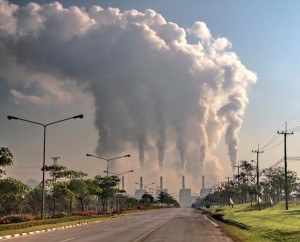
Last month, the New York Times – in partnership with Stanford University and Resources for the Future, an environmental research group– conducted a poll that found Latinos are more likely than non-Hispanic whites to view global warming as a problem that affects them personally, and that they are more likely to support policies aimed at curbing the warming trend. These findings have deep implications for the 2016 presidential campaign, where Latinos comprise a substantial – and desirable – target population for both parties.
“There’s a stereotype that Latinos are not aware of or concerned about these issues,” said Gabriel Sanchez, an associate professor of political science at the University of New Mexico and director of research at Latino Decisions. “But Latinos are actually among the most concerned about the environment, particularly global warming.”
According to Sanchez, the upward trend in environmental concern among Latinos is due in part to the fact that they often live in areas where they are directly exposed to pollution, sometimes near highways and power plants. The poll also illuminates the inherent challenges soon faced by the potential Republican presidential candidates, two of whom are Latino, and many of whom question or deny the science behind the claim that humans are causing the world to warm.
“We’re not at rallies. Latinos in immigrant communities are more concerned about putting food on the table,” said Nicole Hernandez Hammer, a sea-level rise researcher in politically-significant Florida and one of First Lady Michelle Obama’s guests at the recent State of the Union Address. But, she continued, “We know that our communities are disproportionately more vulnerable to the impacts of climate change, so when it comes time to vote, we make our voices heard on the issue.”
Absent speculation for the reason of heightened environmental awareness among Latinos, it is clear that this is an issue that will remain deeply connected to the community from the personal – and, of course, political – level for years to come.

It should also be noted that many of us Latinos have families in, stay in contact with, and see the news from our countries of origin in Central and South America. The effects of climate change are more severe in their impacts on these emerging economies. As climate change intensifies, expect economic turmoil to resonate throughout the continent. The subtle irony here is that those that deny that climate change even exists, may be prompting, with their denial, a potential humanitarian crisis that will see immigration to the U.S. increase to levels not yet seen, as the repercussions of climate change become evident in the economies of our neighbors to the south. Multiply this by a global migration from south to north, and you can expect unpredictable upheavals across the planet.